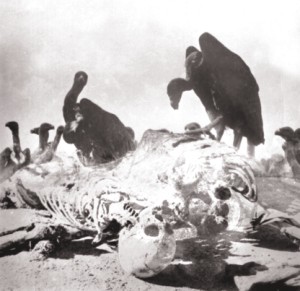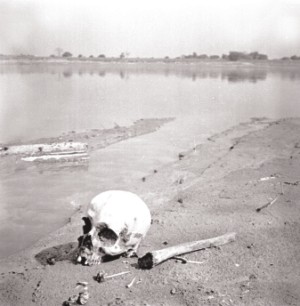|
Current Affairs
THE LONG DUE APOLOGY
Rifat Munim
 |
A formal apology by Pakistan may go a long way to heal the wounds created by the genocides and mass murders by the occupation forces and the local collaborators Photo: Naibuddin Ahmed |
Although the historic Nuremberg trial held immediately after the World War II had paved the way for bringing the war criminals to book on the basis of the United Nation's Convention on the Prevention and Punishment of the Crime of Genocide (CPPCG), not all the countries took the same path. Since then several conventions including the Geneva Convention and the CPPCG, which have been ratified by most countries, have helped to strengthen various facets of the international law to protect civilians in and around a war zone and to ensure punishment of the war criminals. However, nothing could deter the warmongers from killing innocent people. But with the passage of time we stepped into a world where even the most private of one's moments are getting politicised in the name of globalisation. Given this, it is little wonder that highly politically charged demands such as war criminals' trial, war reparation and formal apology on the part of the occupation forces will find itself in a labyrinth of conflicting ideologies and interpretations, resulting in unnecessary deferral of the process.
Be that as it may, most parts of the world have come to terms with their respective war crimes. Some of the countries offered formal apology, agreed to pay the war reparation and settle other issues while some took stern measures to put the local war criminals on trial in accordance with the International Crimes (Tribunals) Act, 1973. Some countries, on the other hand, have gone on shamelessly justifying all the barbaric acts of mass murder and destruction that had been committed during a war. In this regard, the case of Serbia can be cited, a country which not only provided the ideological motivations, but also equipped the Bosnian Serbs with all the deadly weapons to execute the 'ethnic cleansing' of the Bosnian Muslims in 1992-1995 in what is known to be the worst civilian massacre in Europe since World War II. Yet, neither the Serbian leaders nor the Bosnian Serbs have ever admitted to their barbaric crimes. It was only under pressure from the UN that the Serbian leaders acquiesced to the fact that Serbian troops were responsible for the massacre of about 8,000 Bosnian Muslims in Srebrenica in 1995. And the recent Serbian resolution to issue a formal apology for the genocide, which was approved after almost 13 hours of heated negotiations in the Serbian parliament, is easily explained by the country's urge to be a member of the EU.
Pakistan, curiously enough, has several parallels with Serbia. Like Serbia, it also took to killing and raping Bengali men and women in an orgy of savage violence. As the demand for self-governance in the then East Pakistan was becoming more and more orchestrated, the West Pakistani leaders imposed an unjust war on the Bengalis and other ethnic groups, which claimed the lives of about three million people and forced 10 million Bengalis especially those belonging to the Hindu minority out of the country, not to mention the numerous rapes and arson attacks that wreaked immeasurable havoc on the country as a whole. According to article 2 of the CPPCG, genocide refers to any of the following acts “committed with intent to destroy, in whole or in part, a national, ethnical, racial or religious group, as such: killing members of the group; causing serious bodily or mental harm to members of the group; deliberately inflicting on the groups conditions of life, calculated to bring about its physical destruction in whole or in part; imposing measures intended to prevent births within the group; and forcibly transferring children of the group to another group.” Notwithstanding the clear definition of genocide and other war crimes provided in the CPPCG, Pakistan is yet to issue a formal apology to Bangladesh, let alone address the war reparation and other unresolved issues.
 |
Photo: Naibuddin Ahmed |
At the 5th round of Bangladesh-Pakistan Bilateral Consultations held in Islamabad on November 1 after a lapse of three years, Bangladesh Foreign Secretary Mohamed Mijarul Quayes raised the issue of a formal apology again. The issue was first addressed in the historic Tripartite Agreement signed in 1974 by Bangladesh, India and Pakistan, which was aimed at reconciliation and which also allowed the Pakistani war criminals to get back to their country without facing the trial. Paragraph 14 of the agreement says: “The Prime Minister of Pakistan declared that he would visit Bangladesh in response to the invitation of the Prime Minister of Bangladesh and appealed to the people of Bangladesh to forgive and forget the mistakes of the past in order to promote reconciliation. Similarly, the Prime Minister of Bangladesh had declared with regard to the atrocities and destruction committed in Bangladesh in 1971 that he wanted the people to forget the past and to make a fresh start, stating that the people of Bangladesh knew how to forgive.” But after the assassination of Sheikh Mujibur Rahman and due to the controversial role of the subsequent governments, the promises made in the agreement were never materialised.
The seven-member delegation, led by the foreign secretary, also discussed long-standing issues that included repatriation of the stranded Pakistanis, sharing of pre-separation period state assets and transfer of foreign aid that was meant for the cyclone victims of 1970. The delegation also formally raised the issue of war reparation for the first time.
A source in the foreign ministry said that since it was for the first time the payment of war reparation was raised, it would definitely take some time for the Pakistan side to come to an agreement. But they are willing to listen to us, the source added.
About the other issues, which were raised several times before, the source said, “Apart from the war reparation, the other issues were not even half-heartedly raised and dealt with as far as the previous governments were concerned.”
However, there was certain progress in bilateral trade agreement, and both sides agreed to intensify efforts to address trade facilitation and removal of tariff barriers for Bangladeshi export goods, the source added.
Imtiaz Ahmed, professor of International Relations at the University of Dhaka, also believes that an all-out approach on the part of our government is necessary to realise our demands.
“There are two ways of dealing with this issue: one is to take it to the international tribunal, and the other is to resolve it bilaterally. Since Bangladesh is trying to solve it bilaterally, it should focus on creating a mass awareness among all levels of the Pakistani people,” he says.
About continuing trade relations without resolving the diplomatic issues, he says, “The two do not contradict each other. It may rather bridge the cultural gap between the two countries, which may even be helpful for the demand to be fulfilled.
“The attempts on our part should not be confined to formal talks only. We should arrange more and more programmes and exhibitions where Pakistani journalists and intellectuals should be invited. Maybe the liberation War Museum can organise exhibitions both in Bangladesh and Pakistan, which will feature the atrocities and destructions done by the Pakistani troops. Bangladesh High Commission in Pakistan can also play a very important role.”
It comes out that fulfilment of the just demands may face politicisation not only in the international circle, but also inside the country. The latter, of course, is more alarming than the former. In line with the Tripartite Agreement, if continuous steps were taken since 1974, the advancement in realising the demands would have been more remarkable.
“All the demands including the war reparation are justified. But all these are very sensitive issues, so they have to be dealt with very carefully. Our side should take more substantial initiatives and make sure that we will not discontinue our efforts under any circumstances,” Professor Imtiaz concludes.
Copyright
(R) thedailystar.net 2010 |
| |
